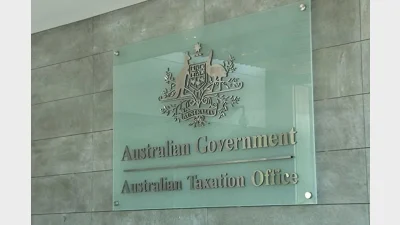(February-2003) SCT to push conciliation
The Superannuation Complaints Tribunal (SCT) is required under section 11(a) of its governing legislation to first provide mechanisms for the conciliation of complaints. In cases where a complaint cannot be resolved by conciliation, the tribunal must conduct a review and decide the complaint by a determination. Conciliation is, consequently, considered by the legislature as the pre-eminent way in which to resolve complaints.
The SCT’s main focus for 2003 is to continue to provide support to the superannuation industry and complainants in finding their own solutions to disputes that arise between them. This will usually be achieved through the industry listening to its members (Complainants), examining their concerns with an open mind and then together actively setting about finding a result which satisfies both parties. The tribunal has been encouraging this kind of approach by placing greater emphasis on conciliation conferences since mid-2000.
The number of cases conciliated has more than doubled (104 in 1999-00 to 222 in 2001-02) and the rate of successful resolutions increased from 48 per cent to 56 per cent over the same period. In circumstances where the number of complaints lodged is increasing at 20 per cent a year, conciliation is an ever-more important method of resolution if the tribunal’s budget, which is charged to the levy, is to be contained.
An independent consultant engaged by the tribunal estimated that it costs about $1500 to conduct a conciliation conference, compared to more than $6000 for a case to be determined by a three-member tribunal determination. I am sure that all trustees (and fund members) would rather participate in the tribunal’s conciliation program than have the levy increased to meet the costs associated with paying for a rising number of determinations. Accordingly, I would invite the industry to increase its participation in, and commitment to, the conciliation program.
An increase in the number of decisions of trustees affirmed (50.8 per cent in 2000-01 compared to 59 per cent in 2001-02) coupled with a decrease in the number of trustee decisions overturned (42.5 per cent in 2000-01 and 33 per cent in 2001-02) is very encouraging. The normative effect arising from tribunal decisions is being registered by the industry and hopefully by some complainants. Given the number of determinations issued by the tribunal in the past three years, it is hoped that this trend will continue.
Over time, a combination of more successful conciliation outcomes and a greater appreciation of the likely outcome from determinations should lead to a proportional decline in the need for cases to be dealt with at the highest cost point. The aim of everyone involved, including complainants, is to reduce the cost of complaint resolution so that that resources can be used to achieve a greater investment return to all fund members.
The tribunal will work with both industry and consumer organisations to achieve these ends. However, it can only succeed with the active co-operation of individuals responsible for the resolution of complaints and complainant-members who realise that they belong to a fund that has other members whose interests also need to be promoted.
In carrying out its functions, the tribunal must provide mechanisms that are ‘fair, economical, impartial and quick’. The objectives identified by the legislation are subject to the formalities created by the Superannuation (Resolution of Complaints) Act 1993 itself and the need to ensure that natural justice is extended to all parties.
With that in mind, the tribunal aims to have those complaints which fall within its jurisdiction resolved in a six to eight month period. Sometimes delays occur — in obtaining documents from the parties, in the parties making submissions, in the timeliness with which a complaint may be listed for hearing and in the tribunal’s own consideration and writing up of its reasons.
Procedures to be introduced by the tribunal, including a maximum eight to 10 week writing-up period, should ensure that performance is timely in accordance with the requirements.
Another challenge which the tribunal will face this year follows the introduction of amendments to the Federal Family Law Act allowing for the distribution of superannuation as part of matrimonial property settlements. It has not been possible to carry out any estimate as to the likely volume of work which will arise from the amendments. However, the tribunal does not expect the first of such cases to reach it prior to the middle of 2003.
Graham McDonald is chairperson of the Superannuation Complaints Tribunal.
Recommended for you
The responsible investment body is warning that a one-size-fits-all ESG framework mirroring those in the UK and the EU could do more harm than good.
Australian super funds are monitoring the US closely as President Donald Trump increasingly intervenes in corporate policy, moves that are reverberating through global markets and prompting reassessments of portfolio risk.
Industry fund HESTA has filed an appeal against an ATO decision on tax offsets from franking credits, with the Australian Retirement Trust set to file a similar claim soon.
The latest superannuation performance test results have shown improvements, but four in 10 trustee-directed products continue to exhibit “significant investment underperformance”, warns APRA.











